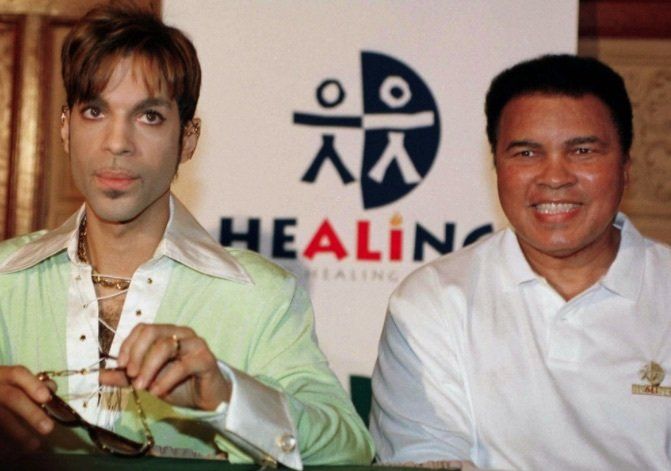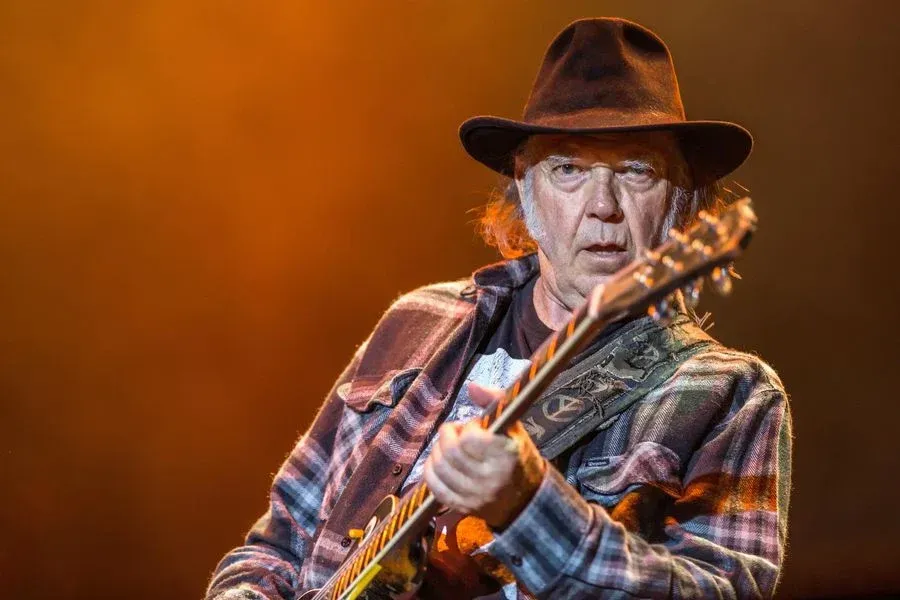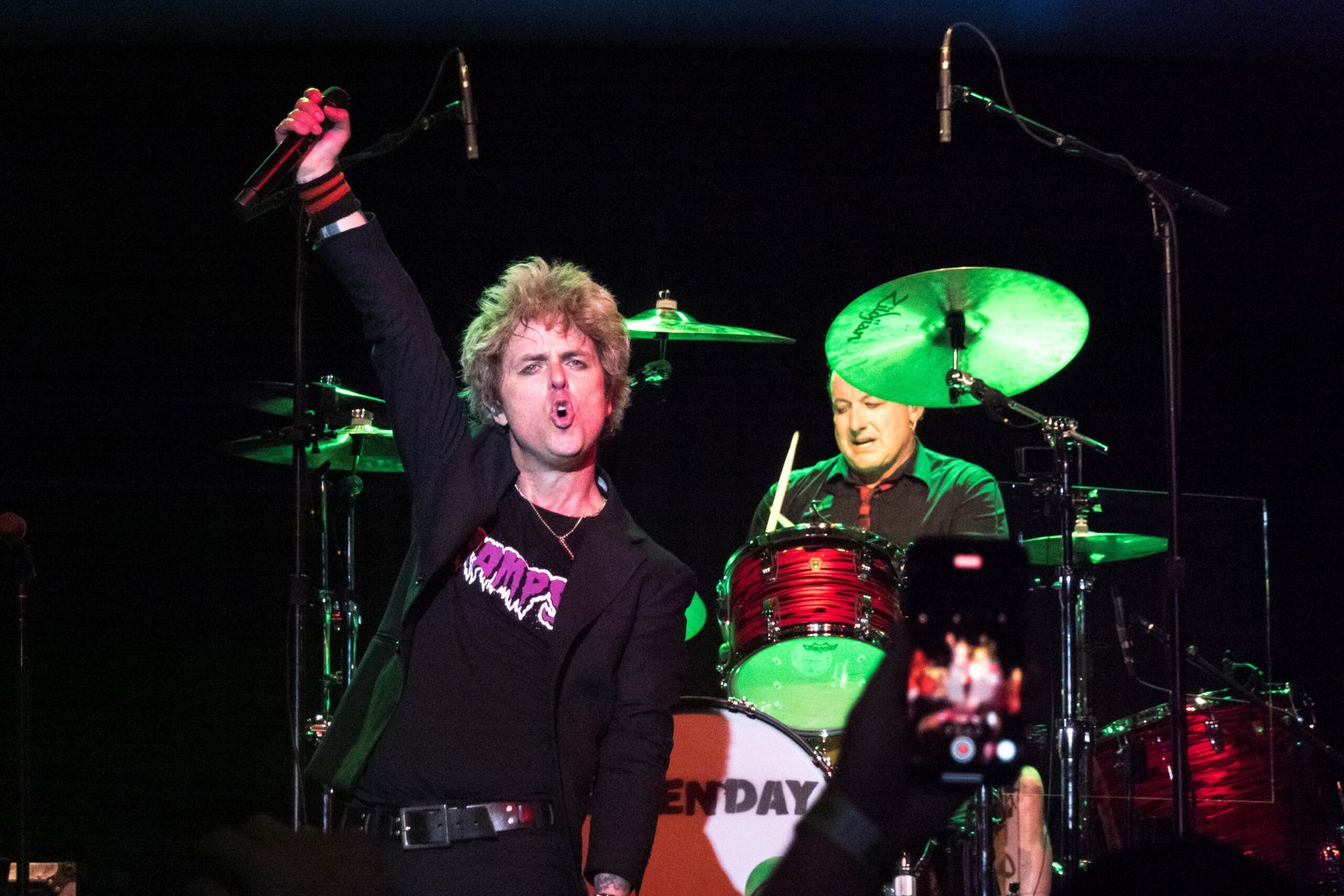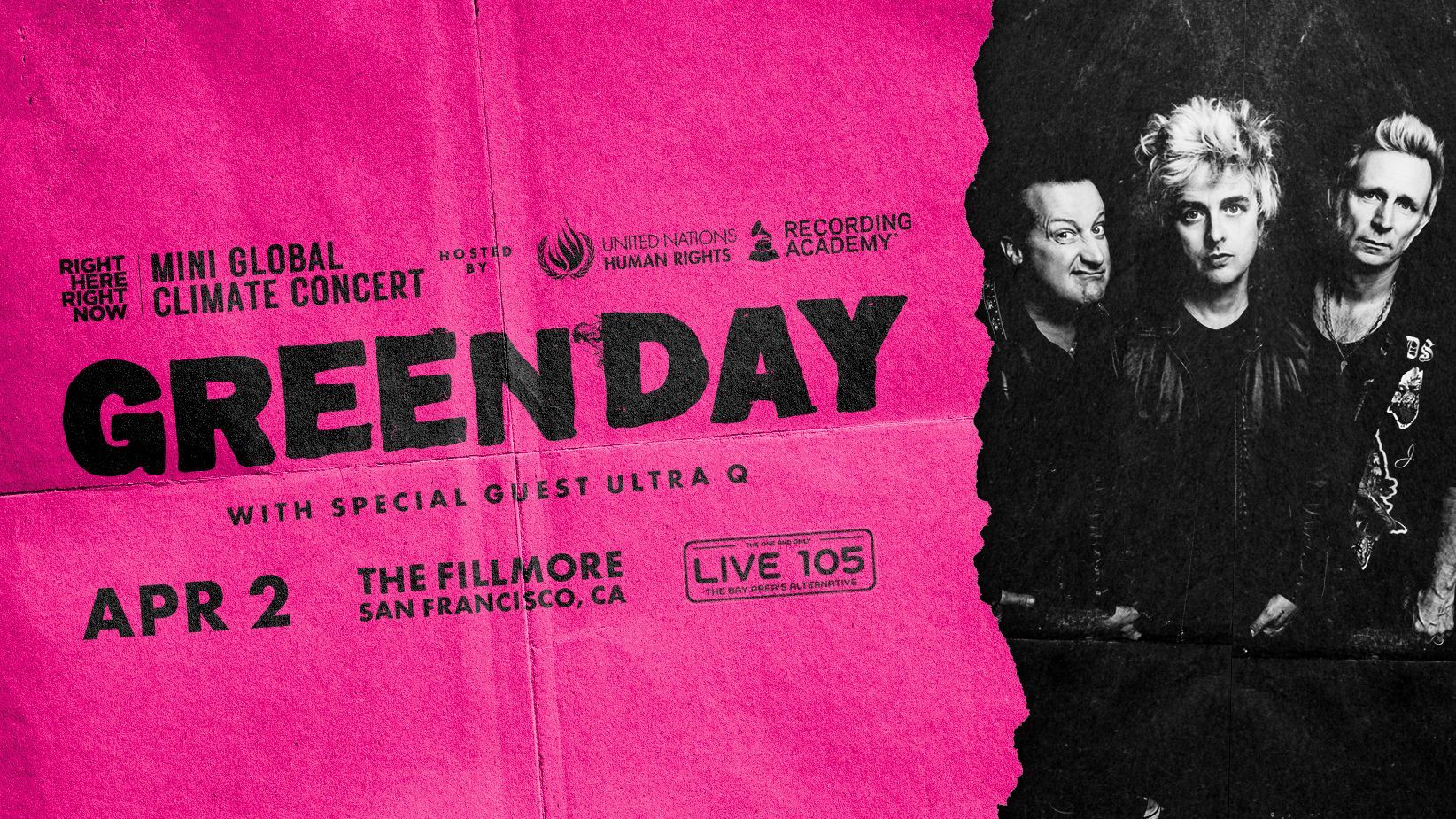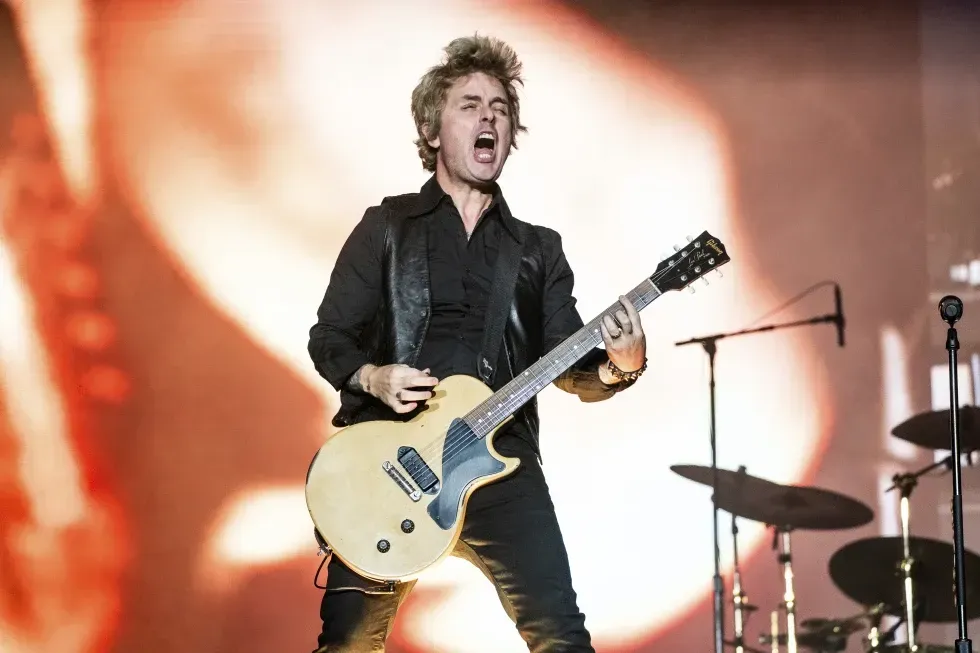When Muhammad Ali met Prince cause flash
BBC NEWS / LONDON (June 5, 2016) – June, 1997. Prince, at this time, is one of the best-known artists in the world, his string of 1980s and early 1990s hits still recent enough for people to see him as an artist at his peak.
And yet, when he received a phone call from another well-known figure, he dropped everything at only 48 hours’ notice to fly out to meet him.
It’s a measure of Prince’s affection for Muhammad Ali that he flew from his native Minneapolis to Washington DC to see him.
And it’s a measure of Ali’s affection for Prince that he welcomed him like an old friend, despite this being their first meeting.
The setting was the five-star Hay-Adams hotel. The reason was to support Ali’s World Healing Project that raised money to combat bigotry worldwide.
‘An incredibly long shot’
The man who introduced them to each other, David Clark, spoke to the BBC on Sunday, two days after Ali died aged 74, and six weeks since Prince died suddenly at 57.
Mr Clark worked with Ali on promoting the World Healing Project in 1997. Knowing an MTV crew would be attending the launch of the scheme, he suggested they seek Prince’s support to get more publicity, and contacted his manager Londell McMillan.
Not that Prince was known as Prince at this time, of course.
In 1993, he changed his name to a symbol, then to The Artist Formerly Known As Prince, after a dispute with his Warner Bros record label, who refused to release Prince’s music when he wanted.
The Artist took to performing with the world “Slave” written on his cheek in protest at his label, which owned the name “Prince” – the name with which he was born.
“I had heard that The Artist was a Muhammad Ali fan and had never met him,” said Mr Clark, who now runs David Clark Cause, an organisation promoting charitable work around the world.
“We’d known it was an incredibly, incredibly long shot to get someone like him to say “Yes” and travel on his own dime at such short notice.”
There was no question of Prince, or The Artist, or the symbol, saying “No”.
He had grown up idolising Ali, who had himself changed his name after converting to Islam and denouncing his previous name, Cassius Clay, as his “slave name”. “I didn’t choose it and I don’t want it,” he said.
“My friend called me a couple of days ago and asked me,” Prince told a press conference after arriving in Washington.
“He said, Muhammad wants you to – and I said ‘Yes’. I didn’t even let him finish. He could have said, ‘Mow the lawn,’ and I would have been down with it. Muhammad’s my hero. He has been since I was a child.”
‘You have to call him The Artist’
A few hours earlier, Prince had arrived in Washington, and made his way to meet his idol in his hotel room.
“There was a knock on the door, and there was The Artist with his security guard,” Mr Clark said. “He had a look of amazement on his face.
“He saw Muhammad at the same time Muhammad saw him, and Muhammad said ‘Prince!’
“But his daughter, Hana, said ‘His name is The Artist, and you have to call him The Artist – or I will get him to call you Cassius Clay.’ Then Prince almost jumped into his arms.”
The two spent the whole day together, with photographs showing them being almost playful with one another – in one image, Ali is seen playing with Prince’s hair and ear as the singer grins.
“When Prince came in, they bonded over magic,” Mr Clark said.
“Muhammad told Prince he wanted to show him a special trick – Muhammad then got up and pretended to levitate. Prince said ‘That’s nothing’ and jumped up on the table and pretended to be doing the same trick.
“They were like two kids. These were two men who were trailblazers. The ‘authenticness’ of each impressed the other.”
Mr Clark said the two men, in their own way, stood apart in their fields. But both, by standing up for what they believed, also paid a price professionally.
Ali, in 1967, refused to be drafted to fight in Vietnam, subsequently having his world heavyweight title stripped from him and being banned from competing for three years.
While Prince’s decision to stand up to his record label for seven years and to work anonymously did not have such profound implications, Mr Clark said both men were able to admire each other’s integrity and determination.
Prince’s upbringing – an African-American boy in suburban Minnesota – also led him to look up to Ali, the son of a sign painter in segregation-era Kentucky, Mr Clark said.
“Muhammad seemed to know Prince’s music, and from what I understood, when Prince was getting hassled as a young man in Minneapolis, he used to point to the baddest man on the planet being black – Muhammad Ali.
“It’s my hope that they will not only inspire but ennoble and point the way for other people to follow their own path,” Mr Clark said.
“It can be rough sometimes, but in the end, it pays off. And a kid can look up to them and know it’s OK to be different.”

© Copyright 2025 / David Clark Cause, Inc.

